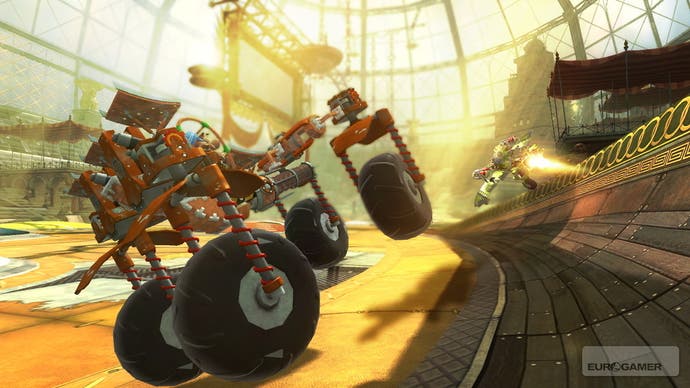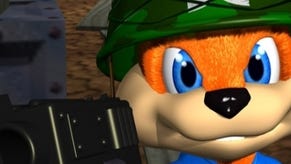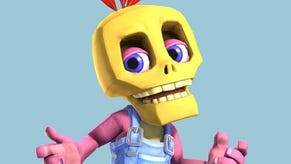Rare's Mark Betteridge
The studio head talks about bringing back Banjo.
It's not been an easy few years for Rare. It's a cliché to point it out, of course - you'd be hard-pressed to find an article about Rare in the last few years that doesn't mention its fall from grace following Microsoft's buyout, and we've no doubt that the studio is sick of hearing about it.
However, if you're going to talk about a return to form, it's all a bit hollow without mentioning that there have been tough times in the past. That old Rare magic, which thrilled and delighted the studio's fans for many years and turned it into one of the N64's most desirable developers, simply didn't show its face on the Xbox - and lacklustre early showings on the Xbox 360 left us wondering whether it would ever go right for the former British powerhouse.
Viva Piñata was the end of that pessimistic outlook. It may not have been the greatest commercial success, and it may not have clicked well with the Xbox 360's audience at the time, but by god it was a fine slice of gaming. Its feet firmly on the ladder back to gaming glory, Rare is now taking on one of its most-loved IPs, Banjo-Kazooie, and preparing to launch an update which should - fingers crossed - prove for once and for all that the spark of genius never quite left Twycross.
We caught up with studio boss Mark Betteridge for a chat about the new Banjo-Kazooie - and quickly learned that this year's E3 is actually a big milestone for the franchise as a whole. "This week, it's ten years since Banjo Kazooie on the N64," Mark informed us at the outset. They grow up so fast.
"When we first thought about building another Banjo game, we had a lot of discussion about what kind of game it should be," he reveals. "It's inherently a platform game, but we wanted to address a couple of things with this, if we were going to do it at all."

"Firstly, we wanted to build a game that couldn't really be built on previous consoles - to add something new in terms of gameplay. That's nothing to do with graphics at all, it's in terms of gameplay and what I'm actually doing in the game. That was high on the list."
"Secondly, platform games inherently have suffered from a bit of a replayability problem. People have put in multiplayer and things like that to try to add longevity to what is, in many ways, a single gameplay experience for a lot of people. They complete the game once, and go "okay, I've seen it, done it, seen everything, got the t-shirt" - and then move on to another game."
"Obviously there's one other side to that in today's market, which is that a lot of people are good games players and are able to simply rent the game for a few days, and complete it in that way. So we wanted to address that longevity in our gameplay as well."







